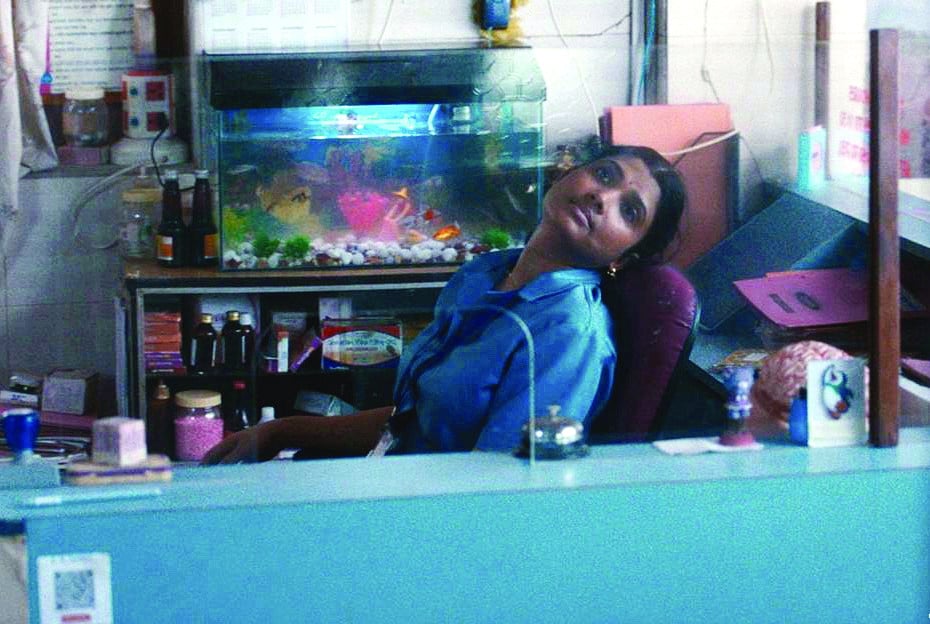With her fiction feature debut, All We Imagine as Light, Payal Kapadia became the first Indian filmmaker to win the Grand Prix at Cannes. Released in cinemas around the world, including in Germany on December 19, the work is now set to become one of the most theatrically distributed Indian independent films of all time, according to DW.
In India itself, where the film was also recently released, All We Imagine as Light is also enjoying success. “We’re very happy,” says Payal Kapadia. “But at the end of the day, it’s a very small independent movie.”
But even without the marketing power of blockbuster movies, the arthouse work is garnering attention. Named best film of 2024 by British magazine Sight and Sound, it has earned two nominations for the upcoming Golden Globes, in the best director and best motion picture in a non-English language categories.
Payal Kapadia had already started collecting awards at the Cannes and Toronto film festivals with her previous film, A Night of Knowing Nothing (2021), a feature-length documentary that included elements of fiction.
A story set in Mumbai
In All We Imagine as Light, she inverted her approach; her documentary background can be felt in her storytelling, most unmistakably in the film’s opening sequence. Before revealing the story’s main protagonists, a montage of observational scenes shows unidentified people going about their business in nighttime Mumbai. The images are overlayed with a dreamlike kaleidoscope of conversations in different languages, including Bengali, Bhojpuri, Gujarati, Marathi and Malayalam – the language spoken by the main characters in the film.
All We Imagine as Light portrays three working-class women finding their way in one of India’s most crowded cities, which is where they’ve set up their life after migrating from the south of the country.
At the time of India’s last census (2011), Mumbai had 23.5 million inhabitants. Migrants made up 43 per cent of the population. It’s also a city with extreme inequality; around half of Mumbai’s population is estimated to be residing in slums.
Kapadia says she tried to express her “love-hate” relationship with Mumbai in the film, which shows how the anonymity of the big city provides relative freedom for these women, especially compared to their rural background in the southern state of Kerala. But this independence comes at the cost of long daily commutes and other hardships.
“Mumbai is a city that is constantly displacing people; people are displaced and moved to far-fetched corners of the city, because suddenly one area goes through a real estate boom and the people who originally lived in one area can no longer afford to live there, or they’re paid off to move out,” Payal Kapadia tells DW. Within the past two decades, the filmmaker adds, “I’ve seen the city skyline completely change and that is I think the fundamental characteristic of Mumbai.”
In her film, Payal Kapadia comments on various issues affecting Indian society – including gentrification, patriarchy and class inequality. The latter she makes visible through depictions of caste, language and religion. But the filmmaker isn’t pushing a message; she rather focuses on sharing the protagonists’ experiences through poetic and subtle tones – a cinematic experience that’s the opposite of classic Bollywood bombast.
A trio to remember
The film centres on Prabha (Kani Kusruti), the head nurse of a city hospital, and her younger colleague, Anu (Divya Prabha, who share an apartment. They end up helping their newly retired co-worker, Parvaty (Chhaya Kadam), who is threatened with eviction from her apartment due to her late husband’s aversion to paperwork.
The two roommates also have their own personal issues. Prabha is a reserved and lonely woman whose husband has left her to find work in Germany. Meanwhile, bubbly Anu spends her free time meeting up with her boyfriend, a relationship she has to keep secret, knowing that her Hindu family wouldn’t approve of her dating a Muslim man.
Kapadia addressed a similar situation in her documentary, A Night of Knowing Nothing. It features a film student’s letters to her estranged boyfriend; their intercaste relationship had been prohibited by his family.
Having other people determining who you can be with and who you can marry “is very much part of the everyday life of young people in India,” explains Kapadia. “That’s a big concern for me and I use it as a kind of a device in my films to talk about larger issues – but with something so fundamental as love.”
The film doesn’t reveal much about Prabha’s absent husband. A luxury rice cooker, “Made in Germany,” is delivered to the women’s apartment. The man left Prabha shortly after their arranged marriage, and stopped contacting her. The gift is seen as the last thing she’ll “hear” from him.
Legally in India, explains Kapadia, a woman can get an annulment of her marriage if her husband has disappeared for a long time, but like Prabha in the film, women rarely file for divorce. “There’s much internalized misogyny,” says the filmmaker. So, these women feel that “it’s better to be married than to be divorced.”
Kapadia says that she picked Germany as the location to let Prabha’s husband disappear, since it’s a country that doesn’t have an important Malayali diaspora. Malayalis from Kerala typically head off to the Middle East to find work, and it would have been easier to locate the husband in that region through connections, she says.
As she started thinking about the scene with the kitchen appliance, she locked in on Germany, “because there is still this idea that, you know, things that come from Germany are better somehow,” adds the filmmaker.
Another one for Germany
Despite the mention of Germany in the film, the funds to produce All We Imagine as Light rather came from other European countries. But in a way, Germany still played a side role in launching Kapadia’s career and getting the France-India-Netherlands-Luxembourg (amongst others) co-production made.
Kapadia’s short film And What Is the Summer Saying premiered at Berlinale Shorts in 2018, and that’s where she met her French producer, who also encouraged her to apply for the Berlinale Talents program, the Berlin International Film Festival’s networking platform for emerging film creatives. Through the program, they met again in 2019 and discussed their vision of cinema by watching films at the festival.
Another important spark in Kapadia’s path was being able to watch films at the Goethe-Institut, where she also discovered experimental works through the Experimenta film festival. “This film festival was big, very important to me,” she says. “Really for me, not having that much access to cinema at the time as a young student in college, those spaces really meant a lot.”















































